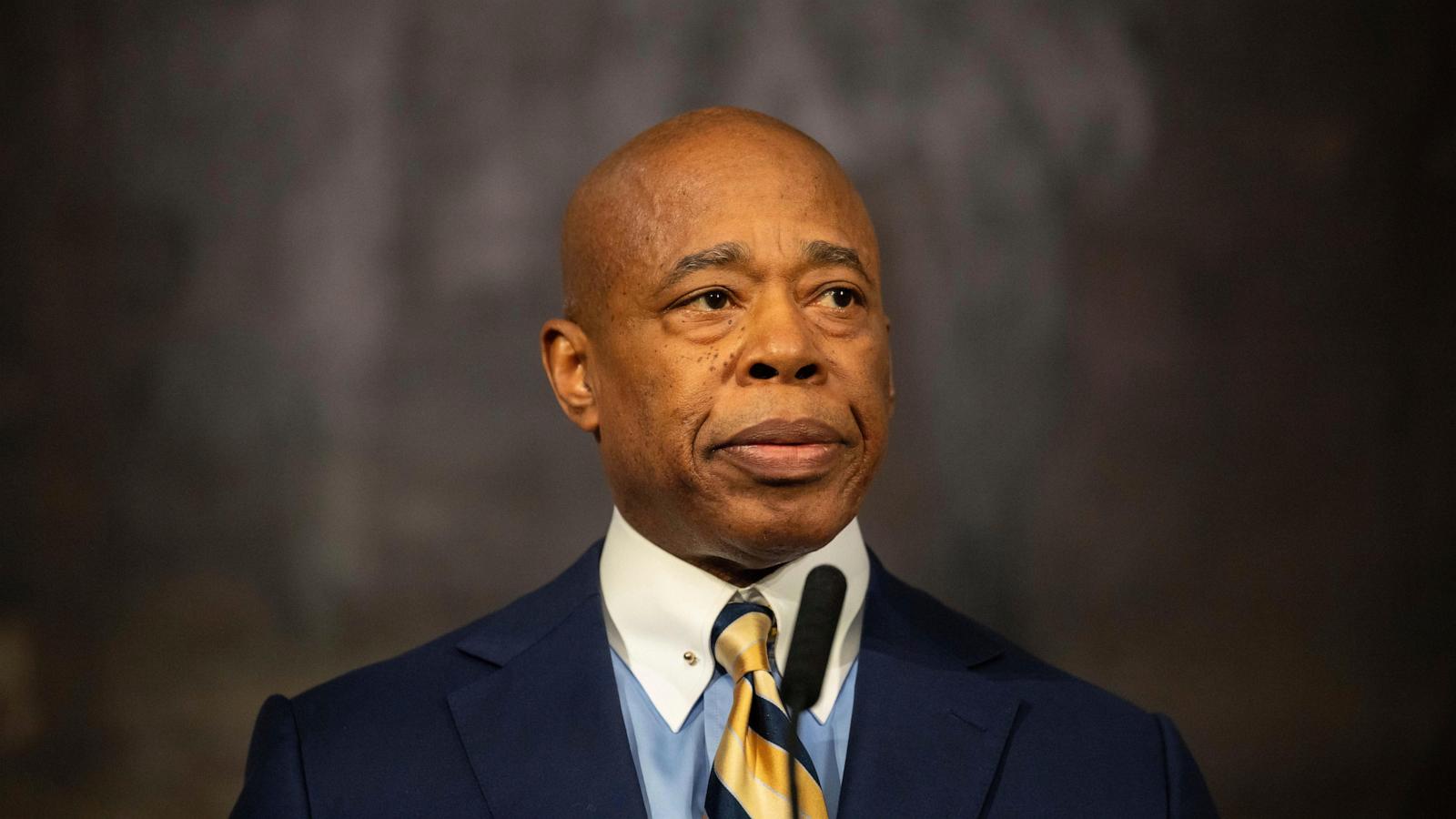Mayor Adams's Controversial Meeting with Trump: Jobs, Gaza, and a Pardon?
In a move that has sparked intense debate, New York City Mayor Eric Adams met with former President Donald Trump, sparking controversy and raising eyebrows citywide. The meeting, shrouded in secrecy until afterward, covered a wide range of topics—from bringing manufacturing jobs back to the Big Apple to the delicate Gaza ceasefire—but notably excluded discussion of Adams's ongoing federal bribery case. Did this hush-hush meeting pave the way for a potential presidential pardon? Let's delve into the details and unpack this captivating political saga!
A Controversial Rendezvous in Florida
Mayor Adams's trip to Mar-a-Lago to meet with Trump was met with immediate backlash from potential rivals in this year’s mayoral primary. Critics accused Adams of an alarming show of allegiance, suggesting a blatant attempt to curry favor and potentially secure a pardon for his impending legal woes. Adams himself refuted these claims, stating that the meeting centered on vital discussions about New York City's future, emphasizing that prioritizing the needs of New Yorkers should transcend partisan politics. This statement has certainly made a splash, but what concrete points were discussed? This clash between political pragmatism and ethical concerns presents a dramatic, compelling case study in the complexities of modern-day political decision-making.
The Focus on New York's Needs
During their meeting, Adams and Trump reportedly engaged in substantive discussions around how the federal government can provide additional assistance to improve the lives of New Yorkers. Discussions reportedly focused on significant economic and social development initiatives impacting the well-being and financial security of all New Yorkers. Adams emphasized a vital collaborative relationship between the local and national governments as necessary to maintain public safety and advance the broader economic growth of New York City.
A Silent Treatment on the Bribery Case?
Despite rampant speculation regarding the bribery charges against Adams, neither he nor any representative made any formal comments confirming the mention or discussion of it. Adding fuel to the speculation, this silence has created another opportunity for debate among citizens. The official statement released following the meeting emphasized discussions revolving around New York's immediate and future needs, leaving questions hanging unanswered. Meanwhile, critics have been quick to point out the potential implications of a presidential pardon influencing this discussion, should one be granted, casting even more doubt on the political climate.
The Fallout: Political Divisions and Public Opinion
The meeting has sparked intense public and political debate, deepening the already significant political rift in New York. Adams's critics have seized on this incident, highlighting what they see as blatant political opportunism and jeopardizing public trust. Political pundits from all sides of the aisle have presented their interpretations, with many pointing out potential ethical conflicts surrounding a mayor negotiating city priorities while facing criminal charges. This polarization demonstrates the increasing political tension impacting all local levels of government in recent years. Political tensions continue to affect policy making and compromise effective bipartisan efforts that address national concerns impacting American citizens nationwide.
Navigating a Political Tightrope
Adams has publicly defended his decision, emphasizing his commitment to New York City's interests. However, the optics of his meeting with Trump have undoubtedly presented significant political challenges. The potential perception of a deal-making exchange between opposing political figures in an effort to pardon potential illegal actions has caused a heated controversy throughout the public. This situation exposes inherent challenges faced by politicians as they navigate complex political alliances while addressing issues that often affect many different individuals across communities.
Beyond the Headlines: Manufacturing Jobs and the Gaza Ceasefire
Beyond the dominating controversy surrounding the pardon, the conversation between Adams and Trump also included manufacturing jobs and the Gaza ceasefire, though details on these discussions remained scant. These topics underscore the wide range of complex geopolitical factors which impact the international relationships that often lead to policy implementation.
A Glimpse into Broader Discussions
Although limited specific details have been released regarding the manufacturing job discussions, it remains an area of active bipartisan concern. Both Adams and Trump share some alignment on issues related to strengthening America's economy and bringing manufacturing jobs back to the states. Such issues will undoubtedly require political compromises across parties, demonstrating that the discussions and outcomes will impact millions across the United States and beyond.
International Relations and Foreign Policy
The Gaza ceasefire talks demonstrate the reach and implications of the mayor's interactions with high profile governmental officials. Adams's willingness to engage in these global discussions is representative of the complexities involved in navigating domestic policy amidst global dynamics. It highlights that the political decision making and policies often do not remain local issues and will directly impact both domestic and international relations.
Take Away Points
- Mayor Adams's meeting with Donald Trump has sparked significant controversy and political debate.
- The meeting's focus was ostensibly on New York City's needs, not Adams's federal bribery case.
- Critics accuse Adams of seeking a presidential pardon, while he defends his actions as prioritizing the city's interests.
- The incident reveals significant political divisions and public skepticism toward political figures.
- Beyond the central controversy, the discussion included manufacturing jobs and the Gaza ceasefire, emphasizing the breadth of Adams's concerns.









